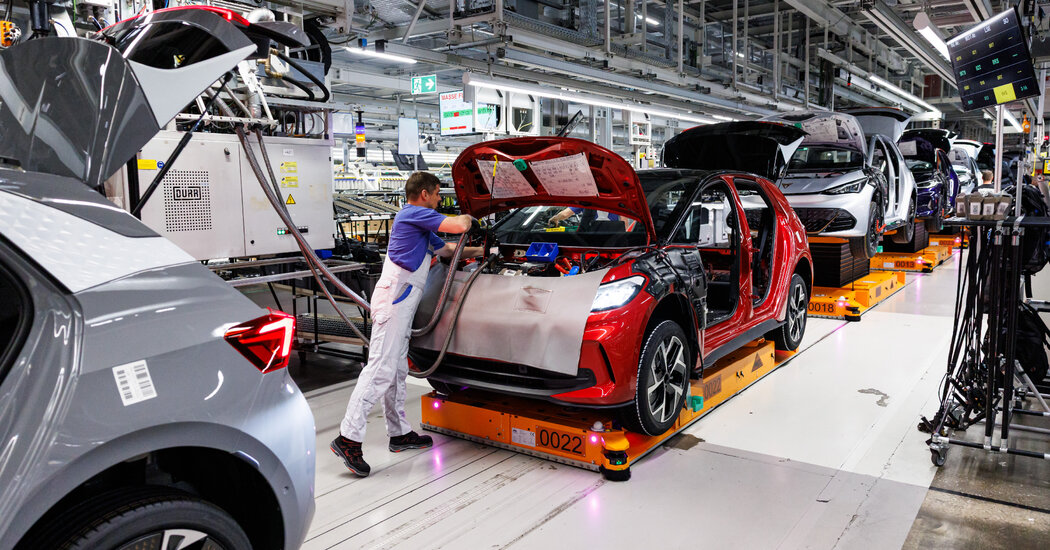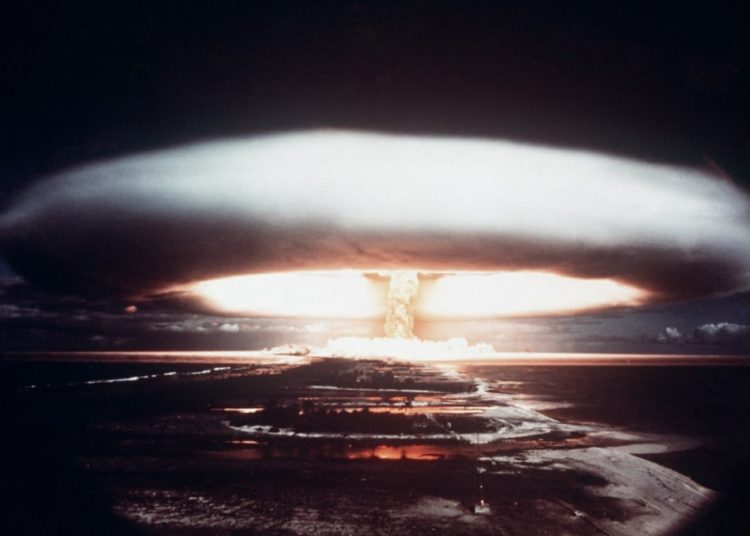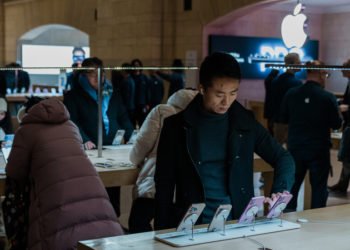Volkswagen said on Thursday that it lost $1.5 billion in the third quarter because of President Trump’s tariffs and the company’s shift away from electric vehicles at Porsche, but it remained on track to meet its financial targets for the year, provided it can secure the semiconductors it needed to power its vehicles.
The Volkswagen Group, which includes Audi, Volkswagen and Porsche among its 10 brands, has been ensnared in the standoff between the United States and China over Nexperia, a Dutch company that makes basic microchips that Volkswagen and other European automakers depend on for systems like windshield wipers, blinkers and warning lights.
Failure to resolve the dispute could inflict further losses on Volkswagen and Germany’s other automakers at a time when falling demand in China and the increase in U.S. tariffs, which has jumped to 15 percent from 2.5 percent in August.
For decades, Germany relied on its booming auto industry to provide jobs and generate revenue that helped to earn it the moniker of “the engine of Europe.” But figures posted by the German statistical office on Thursday made clear that the troubles extended beyond the automakers, as the German economy failed to grow from July to September, compared with the previous three months.
Analysts warned that the crisis raised by the dispute over Nexperia reflected an overall downgrading of the once powerful industry.
“Current fears of production stops in the German automotive industry as a result of Chinese export controls on microchips are one of too many reminders that German industry is no longer dictating the rules of the game, and instead, merely lies at the receiving end,” Carsten Brzeski, an economist at ING bank, wrote in a note.
Last month, the Dutch government moved to take control of Nexperia, which is based in the Netherlands but owned by a Chinese company, Wingtech. In response, Beijing halted all exports of Nexperia’s chips, more than half of which are assembled in China.
Volkswagen is scrambling week by week to secure enough of the roughly 2,000 small semiconductors it needs, Arno Antlitz, the company’s chief financial officer, said in a call with analysts on Thursday. “We are safe until the end of next week,” he said.
But the situation remains precarious. “The forecast is based on the assumption that there will be sufficient availability of semiconductors,” the company said in a statement.
Volkswagen’s loss of 1.3 billion euros, from a profit of €2.8 billion the previous year, was the first the company posted since pandemic lockdowns, which disrupted global supply chains and caused semiconductor shortages.
Overall, Volkswagen expects that total costs related to tariffs will amount to €5 billion this year. Looking ahead, the automaker is trying to find other ways to cut costs to counter the impact of the trade war.
“We expect tariffs to stay,” Mr. Antlitz said. To mitigate their effect, “we need to step up efforts to reduce costs and increase productivity in all brands and units.”
Volkswagen has been in talks with the Trump administration about ways to take into account the company’s investments in the United States, including $1 billion in the electric vehicle manufacturer Rivian. The company also said it would decide by the end of the year whether to build a plant in the United States for its Audi unit.
A shift away from an all-electric strategy at Porsche cost Volkswagen €4.7 billion in charges during the first nine months of the year. Porsche has seen demand for its luxury sports cars plunge, especially in China. Last week the division, which is 75 percent owned by Volkswagen, posted an operating loss in the third quarter of €966 million, compared with a profit of €974 million last year.
Porsche is cutting nearly 4,000 jobs this year, with more losses expected at the end of the year as it returns to making combustion engines.
Oliver Blume, who has worn the double hat of chief executive at Volkswagen and Porsche since September 2022, is expected to step down at the end of this year.
Melissa Eddy is a Times reporter based in Berlin who reports on Germany’s politics, businesses and economy.
The post Volkswagen, Hit by Tariffs, Reports $1.5 Billion Loss and Warns of Chip Shortage appeared first on New York Times.




